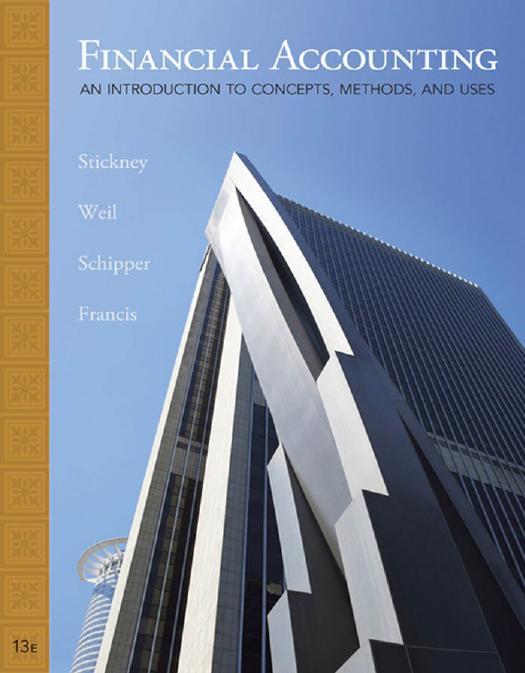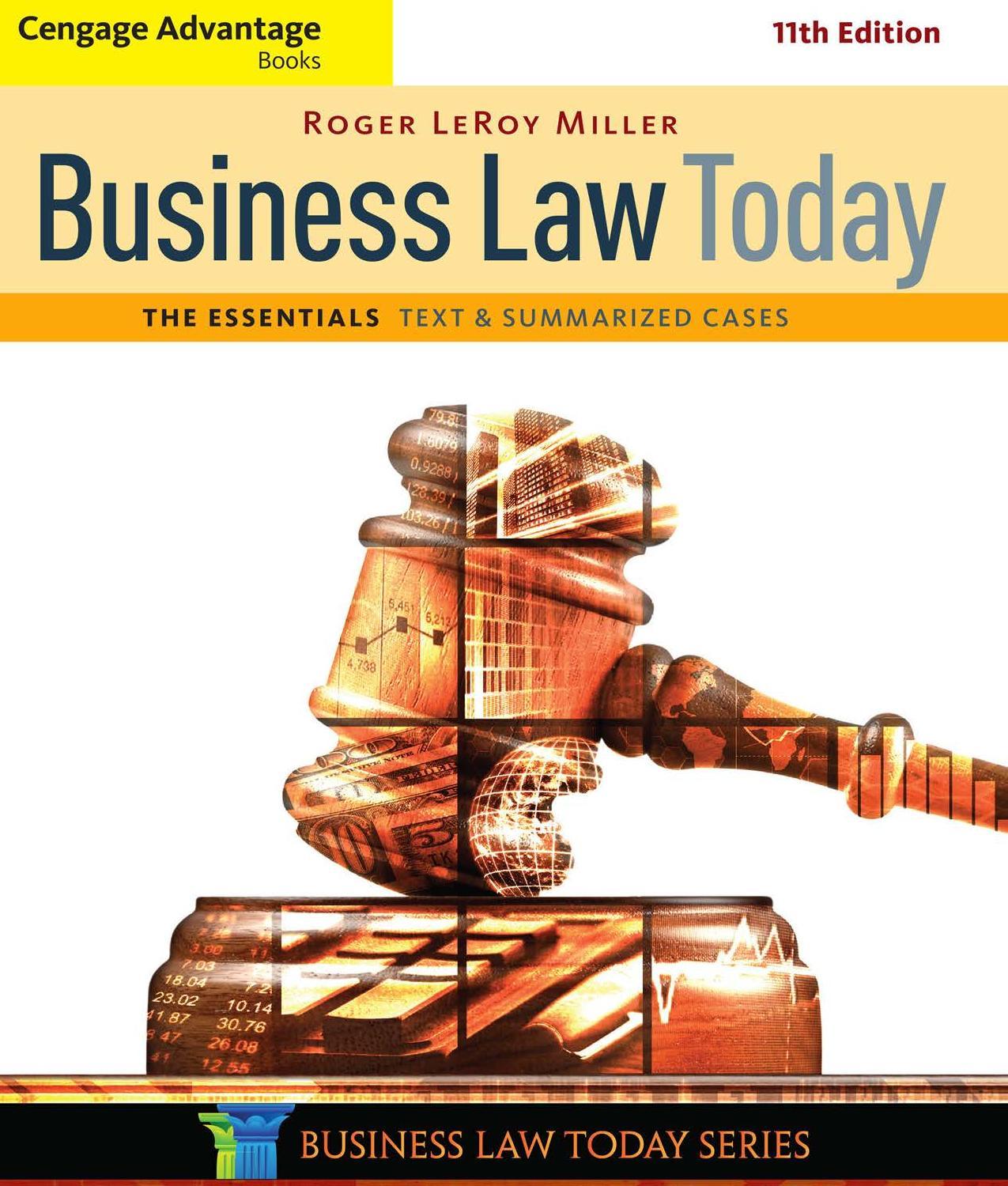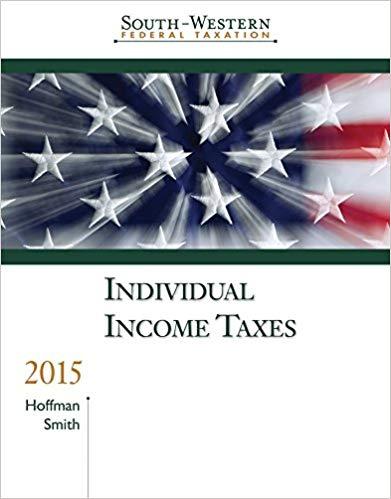Exploring the Variety of Random Documents with Different Content
comes between him and the frowning countenance of red-scarred revolution.
Perhaps Prince Carlo is undergoing a temptation different from any that ever before assaulted a son of kings. It is possible that under the influence of a caressing environment, lulling his senses by the beauty of earth, and sea and sky and the gentle kisses of the warm south wind, he thinks with a shudder of the horrors that surround him in a palace far away, and longs for the peace that life in a land where it would be “always afternoon” would bestow. What if his father died and he, the crown prince, should never return to Rexania? What if, taking to his heart a wife who would be his queen in a kingdom where no traitors lurked, he should forever abandon the cares and perils that had made his father’s existence one long nightmare, to which death alone could bring relief? It might be that the historians of his country would call him, in the years to come, a traitor to the cause he had been born into the world to uphold, the Judas Iscariot of age-end monarchy. But, for all that, his gain would be peace and love.
Prince Carlo’s temptation was not a mere weighing of abstract propositions, nor even the natural inclination of an imaginative youth to take the flower-bedecked path of least resistance. There was an influence at work to make him subservient to the wishes of the men surrounding him that none of them suspected and that he himself only vaguely realized. How great an impression the few hours he had spent in Kate Strong’s companionship had made upon him he was just beginning dimly to appreciate. He found himself practically unable to compel his mind to dwell for any great length of time on the weighty problems that were his to solve. He would discover, to his dismay, that while mentally in search of a path that would lead him in honor from the difficulties that beset him, his mind obstinately refused to confine itself to his immediate environment and all that was involved therein, and would devote itself to reproducing for his delight the tones of a maiden’s voice, the gleam of her eloquent eyes, the fascinations of her gestures and her smiles.
He upon whom rested the destinies of a nation—perhaps the future of institutions hallowed by time and claiming a divine origin— had become little more than a love-sick youth, gazing dreamily upon the heaving bosom of a land-locked sea and longing for the presence of the woman his young heart craved.
Thus beneath us have we seen a few of the countless millions upon whom the September sun shone down that day; and we know that in their comings and their goings they wove unconsciously that web of destiny whose warp and woof fashion the garment that hides the mystery of life.
CHAPTER XIII.
“Woman in bicycle costume is an acquired taste,” Ned Strong had once remarked to a friend. That was before Mrs. Brevoort had taken to wheeling. She had converted him to a belief in the artistic possibilities of a bifurcated dress for women. He had come to the final conclusion that the desirability of a bicycle costume, so far as the gentler sex is concerned, must remain wholly a local issue. Experience was teaching him that generalizations regarding the progressive woman of to-day are worthless. Furthermore, he had learned that whether or not he admired their ways and costumes made little difference to the women of his set. The iconoclastic tendency of recent years finds no more striking illustration than in the fact that women no longer sacrifice their comfort to their dress for the sake of man’s approval, but dare to be unconventional for the sake of their own comfort.
And Ned Strong was obliged to acknowledge to himself that Mrs. Brevoort, dark, piquante, vivacious, presented an extremely attractive picture on this September afternoon as she sat gazing at the blue waters of the Sound, equipped for a long ride on her wheel.
That Kate Strong was a much more striking and impressive figure than Mrs. Brevoort was a fact that had not appealed to the young man’s mind. Perhaps he had not observed his sister critically. Or it may be that he had so long taken it for granted that Kate always made a good appearance that he was not inclined to waste time on the question as to the adaptability of a bicycle costume to his sister’s use. At all events, the youth found pleasure in confining his attentions to Mrs. Brevoort, and failed to notice that his sister’s face wore an expression of melancholy and that there was a listlessness in her manner that the warmth of the day could not wholly explain.
“And you have heard nothing more about him?” asked Mrs. Brevoort, gazing interestedly at Ned Strong. “It seems very strange that he has never written you a line.”
“Doesn’t it?” cried the young man. “And he was such a thoroughbred in his manner and appearance! Wasn’t he, Kate?”
“He was very attractive,” answered his sister, somewhat reluctantly, it seemed. “I feel sure that some day we shall find an explanation to the mystery.”
“Oh, I don’t know,” exclaimed Mrs. Brevoort, airily. “You see, I don’t take a bit of stock in these foreigners. I have seen so much of them! It may be bad form on my part, but I prefer an American gentleman to the most fascinating European that ever claimed descent from Charlemagne or William the Conqueror.” She cast a mischievous, challenging glance at Ned Strong, and went on: “There’s something about monarchical countries that begets ideal lovers but impossible husbands. The greatest complaint over absentee landlords on the other side comes from American girls who have married titled foreigners.”
Ned Strong laughed. “On behalf of my fellow-countrymen I thank you, Mrs. Brevoort. It is too bad that your convictions have not a greater following here among us.”
“So much the worse for those who do not agree with me. How much can an American girl know about a titled foreigner who comes over here looking for a rich wife? Take the case you have just been telling me about,” continued Mrs. Brevoort, vivaciously. “This fascinating youth called himself ‘Count Szalaki.’ How easy it was for you to discover that there was no such title in Rexania! ’Twas surprisingly clumsy on his part.”
“That’s one reason that leads me to think,” remarked Ned, “that there is something more in the affair than a mere adventurer’s escapade. If he had been a fraud he would have been more careful in his choice of a name. If he was, as I have sometimes suspected, a man very high in rank, who wished to disguise his identity, he would have chosen a title that did not exist, taking it for granted that we would respect his wish to remain unknown. There are royal
personages on the other side who travel under names that one cannot find in Burke’s Peerage or the Almanach de Gotha.”
“That’s merely a matter of form,” exclaimed Mrs. Brevoort, glancing at Kate. “Everybody knows who they are, wherever they go. I was introduced to a king in Paris who had chosen to trot around under the name of Mr. Smith, but it was a very thin disguise. He was such a wretched conversationalist that I knew at once that he concealed a throne behind his stupidity. A real Mr. Smith could have talked about something besides the weather.”
Kate smiled at the sarcastic little woman’s words.
“What a thorough democrat you are, Mrs. Brevoort!” she remarked. “I almost suspect that you intend to go in for politics.”
“Why not?” cried Mrs. Brevoort enthusiastically. “If we don’t take part in public affairs, other women will. I believe it is our duty to raise the tone of politics by taking an interest in them. If the men of our class won’t do their duty by the State, it is for us to take their place.” She looked at Ned Strong defiantly.
“I suspect,” he remarked, cautiously, “that you do not approve of my indifference to public affairs, Mrs. Brevoort.”
“Most assuredly I do not,” she exclaimed emphatically. “A youth who claims a divine right to occupy a European throne and defends that assumed right with cannon and gunpowder is, to my mind, in a false position, but he is more consistent than a young American who possesses the prerogative of the ballot and won’t take the trouble to go to the polls to vote.”
Ned Strong laughed merrily. “What a long memory you have, Mrs. Brevoort! It is nearly a year since you learned that I failed to register last fall, and now you bring a sweeping accusation against me. I fear you do not find me possessed of the saving grace of patriotism.”
“Patriotism!” cried the youth’s accuser. “Surely, if you have it, it finds queer ways of expression, Mr. Strong. You fail to vote, and yet you are forever denouncing this country for going to the dogs. I
really believe that I have heard you crack a joke at the expense of George Washington.”
A smile of amusement crossed Kate Strong’s face. “He deserves what you are giving him, Mrs. Brevoort. Ned is a thorough believer in his divine right to let other people save the country.”
“This is unfair,” cried the young man, with assumed annoyance. “I am outnumbered two to one. You have me at a disadvantage. But I will not attempt now, Mrs. Brevoort, to defend my position. And, luckily for me, here comes my chance for escape. You cannot talk politics on the wheel, you two. Are you ready to mount? It is just three o’clock, and we are in good time for a long spin.”
A boy in livery had brought their wheels to the front of the clubhouse, and, mounting quickly, the trio sped down the pathway toward the entrance that opened on to the grounds from the main highway. Mrs. Brevoort and Ned Strong led the way, and Kate followed them, a flush of physical enjoyment mounting to her cheeks as she chased the south wind inland.
CHAPTER XIV.
Mrs. Brevoort and Ned Strong sped along in silence for a time. The roads were dry and hard, and there was enough life in the breeze that had kissed the sea to make even violent exercise seductive. Ned’s companion was an enthusiastic and accomplished wheelwoman, and she pedalled on merrily by his side, sometimes smiling up at him in the mere joy of physical exertion. They had reached the high-road, and were rapidly making their way toward New Rochelle when Ned turned to his companion and said:
“Tell me, Mrs. Brevoort, what is your idea of Kate’s feeling toward Count Szalaki? Do you think she is really interested in the man?”
“How stupid you are!” cried the little woman, who seldom failed to display either real or assumed enthusiasm regarding any given topic of conversation. Turning in her saddle, she looked back, and saw that Kate Strong was wheeling steadily forward a hundred yards to their rear. “But what else could I expect? All men are stupid about certain matters. Of course your sister is interested in Count Szalaki. So am I. I am wild to see the boy. From what you both say of him, he must be simply irresistible.”
Ned Strong frowned and impatiently increased the speed of his wheel. He knew how to withstand the coquetry of a young girl, but the “in-and-out running of a widow,” as he called it to himself, kept him in a state of nervous worry most of the time.
“I suppose,” he remarked crossly, “that what a man needs in these days to make him interesting are black curly hair and an air of mystery. In that case I’m out of it completely.”
Mrs. Brevoort laughed aloud.
“What a jealous creature you are, Mr. Strong! Your wife will have a sad life of it, unless she is a very clever woman.”
“I don’t intend to marry,” remarked the youth sternly. “What a fool I’d be to sell my birthright for a mess of affectation! And that’s what a woman is to-day—simply a mess of affectation.”
“What an elegant expression!” cried Mrs. Brevoort, a gleam of malice in her laughing eyes as she looked up at the youth, who was gazing stubbornly forward and pushing the pedals of his wheel as though he had suffered a great wrong and was obliged to work for his living. “But it does you credit, Mr. Strong. It indicates on your part a remote but more or less intimate acquaintance with biblical lore.”
“But there’s one thing certain,” continued the young man, not heeding her sarcasm, “and that is that if I shouldmarry I would not tie myself down to a silly girl who might at any moment meet a curly-haired man with a title and leave me in the lurch.”
Mrs. Brevoort laughed mockingly.
“How self-confident you are, little boy!” she exclaimed. “Let me tell you, sir, it is my opinion that you will marry a blue-eyed, goldenhaired young doll, who will make you believe that you are the most wonderful man on earth and that she is the happiest woman. I can see it all in my mind’s eye. You prize your freedom, as you think, more than most men. It is just your kind that fall victims to the sweet-faced, blond-haired little vixens who make the most tyrannical wives in the world. Do you like the prediction?”
The youth turned a frowning face to his vis-à-vis. “Why, oh, why, Mrs. Brevoort,” he cried, “will you check the natural flow of my spirits by so dire a prophecy? Think of the awful fate that awaits me, if your words are true! I acknowledge that I have seen other men, perhaps as hard to suit as I am myself, falling into the clutches of spotless young girls who have lured them into the awful maelstrom of marriage; but I swear to you that I shall profit by their experience. I should never marry because I wanted a parlor ornament. When I give up my liberty, I shall insist upon a quidpro quo.”
“What in the world is that, Mr. Strong?” cried Mrs. Brevoort, looking shocked as she glanced up at him with exaggerated amazement.
“That’s Latin,” answered the youth densely. “It’s a dead language, but I used it for a very live purpose. I am not talking at random, you know, Mrs. Brevoort. There is method in my madness.”
Ned Strong looked down at his companion meaningly, but she refused to meet his gaze.
“But method never yet saved madness from disaster,” she remarked, sagely.
Her words seemed to check the youth’s impetuosity, for he cast a pleading glance at her averted face and then wheeled forward in silence for a time.
“The fact is,” he began again, after he had renewed his courage, “the fact is, Mrs. Brevoort, that you don’t understand me.”
A smile that he could not see from his exalted perch crossed the widow’s face. It is only a very young man who ever dares to tell a woman that she does not weigh him justly. The average man may deceive other men; it takes a genius to blind a woman.
“Explain yourself,” she urged, not too warmly.
“I don’t want to give you the impression,” he went on, hesitatingly, “you know, that I don’t admire women—that is, some women, don’t you see?”
“I see,” she answered pitilessly; “you admire women—some women, that is—for anything, everything, but matrimony. You said a few moments ago that you would never marry.”
“Did I?” he asked, almost penitently. “I had forgotten that I went so far. But, I assure you, I didn’t mean to imply, you know, that under certain circumstances and—don’t you see—if I got the promise of just the right woman, that I shouldn’t be very glad to
give up my freedom, don’t you know; that is, if it was perfectly agreeable to her, of course.”
Mrs. Brevoort laughed outright, as they bowled down a long hill at the top of which the Strongs’ manor-house peeped above the trees.
“You are the most amusing man I know, Mr. Strong,” she exclaimed, as they reached the level road and moved forward more slowly. “If you were more consistent, you wouldn’t be half so much fun.”
The youth was not altogether pleased at her remark. He glanced at her searchingly.
“You may do me an injustice, Mrs. Brevoort,” he said firmly. “It is more than possible that I am more consistent than you suspect.”
“In what?” she asked, rather recklessly, looking up at him mischievously. The expression in his eyes caused her a pang of regret at the challenge she had made.
“In my ideas regarding matrimony, in my convictions as to the woman I should wish to marry,” he answered, meaningly. “Shall I explain?”
Mrs. Brevoort gave a questioning glance at his face and realized that he must not explain. She turned in her saddle, as if seeking the support of an ally at a crisis that must be averted at any cost.
“Why, where is Kate?” she cried, checking the speed of her wheel and gazing back eagerly along the road and up the hill that crept toward the manor-house.
Ned Strong turned, rather impatiently, and saw that the road was deserted, save that half-way up the hill an open vehicle, that he and Mrs. Brevoort had been too absorbed in conversation to notice when it passed them, was slowly mounting toward the summit.
“We must go back and find her,” cried Mrs. Brevoort, dismounting from her wheel and looking at Ned anxiously.
“It would be useless,” he said, stubbornly. “She has grown tired of riding alone and has gone back to the club-house. Or perhaps she has stopped at the lodge to speak to Rudolph. That’s our old homestead up there, you know, Mrs. Brevoort. Really, I don’t think it would pay us to climb that hill on the remote chance of finding her. We’ll turn off the main road just above here and get back to the club-house at once if you wish. It’s a shorter cut than we could make by retracing our road over the hill.”
Mrs. Brevoort reluctantly remounted her wheel.
“If you had not talked so much nonsense,” she remarked unjustly to Ned Strong as they resumed their way, “we would not have lost track of Kate.”
“A remark that I consider highly complimentary,” commented the youth, smiling contentedly down at the disturbed countenance of Mrs. Brevoort.
CHAPTER XV.
Posadowski passed through Prince Carlo’s sleeping-room and stepped out upon the balcony. The heir to a throne was still dreaming of love and peace in a land where Cupid should reign supreme, as the arch-conspirator joined him. The young man’s face was pensive with the gentle longings that tinged his revery with sadness. He turned toward Posadowski and said cordially:
“Be seated. I wish to talk with you.”
The clear gray eyes of the exiled Rexanian rested searchingly on the pale, clean-cut face of the youth, and he smiled benignly as he drew a chair toward his captive and, seating himself, awaited the latter’s pleasure.
“How long have you lived in this country, Posadowski?” asked the prince, abandoning his smiling visions with an effort and returning to the dreary realities of life.
“Nearly ten years,” answered the revolutionist, whose gray hair proved that he was older than his smooth pink and white complexion would have indicated.
“I wish to ask you a few questions,” continued Prince Carlo. “I feel —in spite of the fact that you deceived me at our first meeting—that in the larger matters pertaining to the questions at issue between us I can trust you implicitly. I give you credit, Posadowski, for being a man of good intentions and honest in your avowed love for Rexania.”
The arch-conspirator bowed gratefully, in acknowledgment of the generous words of the man he had wronged.
“Tell me frankly,” went on the prince, “do you find, Posadowski, that in this land of democracy the people of the lower classes—for I learn that there are class distinctions in America—are in better case than the working-people of Rexania? Compare, for instance, the rich and the poor in Rexopolis and the rich and the poor in New York. Is
there not more awful poverty in yonder city than in my capital across the sea? Conversely, is there in Rexania a nobleman who wields over the lives of others an authority as tyrannical as that exercised by the great landlords of New York?”
Posadowski gazed at Prince Carlo in bewilderment. He had come to point out to his royal captive the far-reaching influence his abdication of a crown would have upon the oppressed millions of the human race who still live and struggle and perish beneath the crushing weight of thrones and what those thrones demand; and, lo, this incarnation of obsolete systems and archaic theories had asked him a few pertinent and practical questions that rendered Posadowski’s present mission seemingly absurd. For the archconspirator was a clear-headed, honest-hearted man, whose constitutional detestation for shams had long ago made him a rebel against monarchy, and now rendered him dumb as he slowly took in the full significance of the line of inquiry Prince Carlo had put forth.
“You do not answer, Posadowski,” went on Prince Carlo, his voice and manner growing sterner as his words flowed more freely. “Do you know, man, why I came to this country, why I defied my father’s wishes and ran a risk greater even than I imagined at the moment? I wished to see for myself what popular government has really done for a great people in a century of time. They told me on the steamer, these New Yorkers, facts that made even the hard heart of a king bleed for the poor devils who chased the ignisfatuusof freedom into the very stronghold of human tyranny. These are harsh words, Posadowski. Do you dare tell me that they are false—you who know the East Side of that great city in which you, and thousands of deluded Europeans, have toiled in misery that makes the lot of a Rexanian peasant easy, even luxurious, in comparison? Perhaps I have been misinformed. Perhaps I have failed to read aright the newspapers that have come to my hand since I reached this strange, distorted land. But what I have heard, what I have read, forces me to the conviction that no Rexanian in Rexopolis has ever suffered from a form of tyranny so pitiless as that which keeps our countrymen in New York poorer and more hopeless than they were
in their native land. If I am wrong, if I am deceived through insufficient data, I am sure you will set me right. Speak, man. Have I told the truth?”
Posadowski was silent for a moment. Then he answered, a note of stubbornness in his voice:
“Industrial conditions here are not as they should be. That is true. But surely a monarchy would not set them right.”
“Ha!” cried Prince Carlo, “that is just the point. A monarchy would not solve the problems of this country. On the other hand, a republic would not remedy the defects in Rexania’s body politic. I am liberal in my views, Posadowski. I will grant you that if I should mount the throne of Rexania I could not rule after the fashion of my greatgrandfather. The king and his people must walk hand-in-hand to-day, not at sword’s points. But let Rexania become a republic on the instant, and what would result? Dissensions among the people, and political chaos: possibly the annexation of the country by a stronger power on our border. You talk of the selfishness of kings. Are they not the most heroic figures of the age? Take my father—God be with him! He has loved Rexania with a devoted unselfishness that only those who have been near him can appreciate. Weary, sad at heart, sometimes almost hopeless, he has had it in his power to accumulate a vast fortune, put it into portable shape, and abandon his country for a land in which he could live in peace and idleness. Do you think that such a step has been no temptation to him? You have so long looked at only one side of this matter that it will be hard for you to realize the full force of my question. I tell you that my father has loved Rexania with more fervor than you have ever felt for our fatherland, that he has displayed more courage and patriotic devotion in his life than any one of his rebellious subjects has ever shown, and that he has understood the practical necessities of our country’s environment better than the dreamers who have fostered discontent among the people. My father has been a grand and unselfish man, Posadowski, and you—you would crucify him.”
The arch-conspirator had grown pale as the youth, with a calmness that was almost uncanny in its exhibition of self-control, had given voice to the thoughts that had taken form in his mind during his days of captivity. Presently he spoke again, observing that Posadowski had, at that moment, no arguments to advance.
“What dire calamities you may bring upon Rexania by holding me here a prisoner I dare to contemplate. Granting that you keep me captive from the very highest motives of patriotism, can you not see that you are endangering the very cause for which you strive? Let us suppose that my father dies and that Rexania becomes a republic. Unless you kill me, Posadowski, I shall eventually return to Europe. Not only that, but I shall be placed upon the throne of Rexania by forces against which your republican brethren could make no resistance worthy of the name. You are a clear-headed man, Posadowski. I can see by your face that what I have said has made an impression upon you that will give you, surely, a different point of view.”
A grim smile crossed the arch-conspirator’s countenance. “I will acknowledge, Prince Carlo, that I have not at this moment arguments at hand to answer the line of reasoning you have advanced. I am a slow thinker, and, as you can well understand, I am confronted by a dilemma of tremendous import. I must ask you to give me time to weigh your words. If, after close consideration, I reach your conclusions—a result that necessitates the rejection of convictions that I have cherished for many years—I will discuss frankly with you the step that we should take.”
Posadowski arose and approached the prince.
“Let me ask you, Prince Carlo,” he said, before taking his leave, “let me ask you not to discuss the matters we have in hand with my colleagues. There is not one among them who would have allowed you to explain your position as I have done. You understand me?”
“Fully,” answered the prince, smiling up at the gray-eyed Rexanian, “I understand you, Posadowski, and I trust you.”
At that very moment Ludovics was making his exit from a roadhouse a mile away, the fumes of brandy imprisoned in the cells of his brain. With the money that Norman Benedict had left for him at the restaurant in St. Mark’s Square, Ludovics had purchased a revolver and had gone on a hunting expedition into Westchester County. It was big game that he was after—nothing less than a king who was making wild merriment at his expense; and where that king was Ludovics well knew.
CHAPTER XVI.
Just below the lodge gate, and at the very top of the hill, Kate Strong had fallen from her bicycle and sprained her ankle. The sudden and excruciating pain had begotten a momentary faintness that had prevented her from crying out in time to attract the attention of Mrs. Brevoort and her brother, who were at that instant coasting down the hillside at a merry pace.
Dizzy and sick with the shock she had sustained, Kate, realizing that she could not recall her companions, decided to arouse Rudolph at the lodge and send him at once for a physician. The pain in her ankle seemed to grow worse every moment, and she began to doubt her ability to reach the gate of her ancestral home, when an open carriage was dragged over the top of the hill by a panting horse, seemingly one of Westchester County’s Revolutionary relics. The owner and driver of the ancient steed and ramshackle vehicle was wont to remark solemnly that his faithful horse had withstood the wear and tear of years and labor until the bicycle had begun to haunt his footsteps. The effect of wheels operated by men upon the nervous system of an old-fashioned and conservative horse, whose career of usefulness had been rendered possible by the prosperity of the livery-stable business, cannot be appreciated by a flippant mind. In the case under our immediate consideration, the sight of a prostrate bicycle lying by the roadside affected the aged steed instantly. A snort, perhaps of triumph, burst from the supersensitive horse as it planted its forefeet stubbornly in the dust of the roadway and looked down at the overturned wheel.
The sudden halting of the carriage aroused Norman Benedict from an intense concentration of mind. He had been attempting to decide upon a course of action in case the rather unpromising clew he was now following should not result in the discovery of a Rexanian who, as he had been told, had charge of a deserted manor-house
somewhere in the neighborhood. The sight that met his eyes caused the reporter to spring hastily from the carriage.
“Are you badly hurt?” he asked Kate Strong, who had managed to rise to her feet by the aid of the fence toward which she had crept. She stood with one hand on the railing, her face pale and drawn.
“I’ve sprained my ankle, I think,” she answered, trying to smile gratefully at the stranger’s kindly interest in her plight. “If I could get to the lodge, there, our man Rudolph could make me comfortable until a doctor reached me.”
“Draw up here,” cried Benedict to his driver. “Put your hand on my arm, Miss—Miss——”
“Miss Strong,” answered Kate, resting her hand on his elbow and hobbling toward the carriage.
“Now drive slowly up to that gate,” ordered Benedict again, as he turned and lifted Kate’s bicycle from the ground and wheeled it along by the side of his improvised ambulance.
As the carriage stopped in front of the lodge gate, the reporter rang a bell whose vibrations in these days of an international crisis always gave Rudolph Smolenski’s nerves a severe shock. Since the Crown Prince of Rexania had become his prisoner, the lodge-keeper never opened the gate without first making a close and lengthy examination of those who craved his attention. The tradesmen and urchins who had occasion to beard the Rexanian in his lair had noticed of late that he had grown surly and unsociable, and that he allowed no one to pass the gloomy portals of a domain over which his long service had rendered him practically autocratic.
At the moment at which Norman Benedict pulled the knob that set a bell within the lodge a-trembling, Rudolph was deep in revery, and wondering what would be the outcome of Posadowski’s mission to the prince. If he had known that at that very instant Prince Carlo was advancing arguments that tended to shake the archconspirator’s devotion to the enterprise in which the Rexanian exiles were engaged, Rudolph would have felt even greater dissatisfaction
than influenced his mood at the time. He had begun to grow impatient and restless. He had almost become a convert to Ludovics’ belief in heroic measures. The fact was that Rudolph felt that he was risking more than any one of his colleagues in this lawless effort to make European history in a secluded corner of Westchester County. The longer the temporizing policy pursued by Posadowski was continued, the more certain was Rudolph of the ultimate discovery of his secret and the loss of a place that was in all respects satisfactory to his indolent and rather unsociable nature. The thought of returning to the East Side to slave in a sweater’s establishment filled him with horror.
There was something ominous in the sharp summons of the bell that caused him to lay aside his pipe with trembling hand, while his flabby cheeks turned white. He could think of no one who would be likely to disturb the lonely lodge at that hour, unless, as he reflected with conflicting emotions, Ludovics, the impetuous, had found his way back to the centre of high pressure.
Hurrying toward the entrance, his heart beating with unpleasant rapidity, Rudolph opened a peep-hole in the iron gate and looked out. His eyes first rested on Norman Benedict: there was nothing in the reporter’s appearance to increase the lodge-keeper’s apprehensions. But, as his glance fell upon the carriage, drawn up on the outside of the antique stepping-stone to the left of the gateway, a cold perspiration broke out upon his hands and face, and his short, puffy legs trembled beneath him. He had seen his employer’s daughter often enough to recognize instantly the pale, patrician face of Kate Strong. For an instant consternation rendered him powerless. Then he turned from the gate and ran frantically toward the manor-house. Rukacs was on guard on the front piazza.
“Rukacs,” cried the lodge-keeper, excitedly, “keep close behind the pillars, and don’t show yourself where you can be seen from the lodge. Tell Posadowski and the others to keep out of sight. And be sure that not a sound issues from this house until you hear from me again. Miss Strong, daughter of my employer, is at the lodge gate.
She looks very pale: I think she may have fainted, or something of that kind. But keep a close watch, Rukacs. I’ll do my best to hold her at the lodge, but you must keep your eye on the game.”
Rudolph, his legs working clumsily under the pressure of a great crisis, rushed back to the gate, leaving Rukacs white with dismay. The lodge, as he passed it, seemed to tremble with the noise of a bell that froze the Rexanian’s soul with its threatening insistence. Opening the gate, he confronted Norman Benedict.
“Miss Strong has sprained her ankle,” said the reporter, who realized that this was no time for padding his news. “Come out and help me to get her on to a sofa. What are you staring at, man? Don’t you speak English?”
Rudolph made a strong effort of will and approached the carriage. A spasm of pain crossed Kate’s face as she gave one hand to Rudolph and the other to Benedict and stepped to the ground.
“I will go into the lodge, Rudolph,” she said. “I couldn’t stand the motion of that old conveyance a moment longer.”
The lodge-keeper was white and speechless as he helped the injured girl into the parlor of the lodge, while the reporter drew the only comfortable piece of furniture in the room, an antique lounge, toward the front windows and arranged a tattered pillow at its head.
“There is a doctor not far from here?” asked Benedict, turning to the lodge-keeper and giving him a penetrating glance. There was something in Rudolph’s manner that struck the quick-witted reporter as peculiar.
“Half a mile down the road,” answered Rudolph, his voice unsteady.
“Get into the carriage and bring him here at once,” ordered Benedict, sharply, noting instantly the reluctance Rudolph’s manner expressed. Kate Strong also noticed her retainer’s hesitation.
“Do as this gentleman directs, Rudolph,” she commanded; and the lodge-keeper, seeing no alternative at hand, turned and left the
room with hesitating steps.
“Pardon me, Miss Strong,” remarked Benedict, stationing himself at a window from which he could see the roadway, “your man is a foreigner?”
“Yes,” answered Kate. “He is a Rexanian, I believe.” Her reply caused the reporter to regret for the moment that he had allowed the lodge-keeper to leave his sight. Of what significance was a girl with a sprained ankle, compared with the greatest newspaper “beat” of the year?
CHAPTER XVII.
“You are to drive me half a mile down the road and back again,” said Rudolph sullenly to the aged Jehu who had carried Nemesis in a tumble-down vehicle to the gateway of the lodge. “Don’t stop to think about it. The sooner its done the sooner its over.”
With this philosophical remark, the Rexanian entered the carriage and seated himself gloomily behind the taciturn and dispirited driver. There was a melancholy aspect to the conveyance as it moved slowly away from the lodge gate. The broken-hearted steed seemed to be plunged in a gloomy revery regarding the iconoclastic influence of bicycles; the driver cracked his tattered whip in a hopeless way, as if he realized the impotence of his efforts to give an appearance of life and activity to his antiquated turnout; while Rudolph’s face wore an expression of mingled apprehension and dismay that grew more intense the farther he rolled away from the manor-house.
It was this depressing caravan that met the restless gaze of Ludovics about a quarter of a mile below the lodge. He had cut loose from his alcoholic moorings at the road-house, and was tacking toward Rudolph’s ill-fated residence with a purpose much more steady than his steps. He paused by the side of the roadway and aroused Rudolph from his dark forebodings by a loud cry.
“Rudolph!” shouted Ludovics. “Rudolph! Have they turned you out? Good! I knew you were the right kind! Here, man, give me the grip.”
The little inebriate had reached the side of the carriage and seized Rudolph’s cold, damp, flabby hand.
The lodge-keeper gazed calmly at his unruly compatriot. The thought had entered his mind that it was possible to save time by sending Ludovics for the doctor while he and his disheartened driver returned to the lodge.









